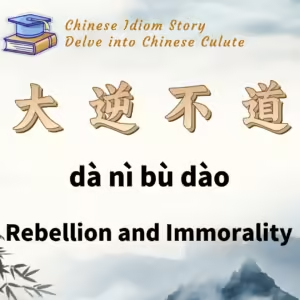
Chinese Idiom: 大失所望 (Da Shi Suo Wang)
English Translation: Greatly Disappointed
pīn yīn: dà shī suǒ wàng
Idiom Meaning: This idiom describes being extremely disappointed.
Historical Source: Records of the Grand Historian, Biographies of High Ancestors.
Idiom Story:
In 206 BC, Liu Bang, the King of Han, led his army to capture the Qin capital before other feudal lords, entering Ba Shang (an ancient place located in modern-day eastern Xi’an, Shaanxi Province). Qin King Ziying, in a simple carriage drawn by a white horse, with a silk ribbon around his neck and holding the emperor’s seal and token, knelt beside the Zhidao Pavilion (in modern northeastern Xi’an) to surrender to Liu Bang. Some generals suggested killing Ziying, but Liu Bang disagreed, saying, “We should be magnanimous and forgiving. Besides, he has already surrendered, killing him would be wrong.” He then ordered officials to guard Ziying and led his army into Xianyang. Liu Bang commanded that the valuable treasures and the imperial storehouses be sealed and then withdrew his army back to Ba Shang. Seeing the disciplined behavior of Liu Bang’s troops, who did not disturb the common people, the local populace eagerly brought cattle, sheep, and food to reward the soldiers. Liu Bang repeatedly declined, saying, “Our granaries are full, we do not lack anything, and we do not want to trouble you.” The people were delighted and worried that Liu Bang might not become the ruler of Qin.
Two months later, Xiang Yu also led his army into Xianyang. The Records of the Grand Historian states:
“Xiang Yu advanced westward, slaughtering and burning the Qin palaces as he went, leaving destruction in his wake. The people of Qin were greatly disappointed and frightened but dared not resist.”
This passage means that Xiang Yu, in stark contrast to Liu Bang, marched westward, entering Xianyang, where he engaged in large-scale slaughter and set the Qin palaces ablaze, leaving devastation everywhere. The people of Qin were deeply disappointed but, out of fear, dared not defy Xiang Yu.
Later, the phrase “the people of Qin were greatly disappointed” evolved into the idiom “greatly disappointed” to describe extreme disappointment.






